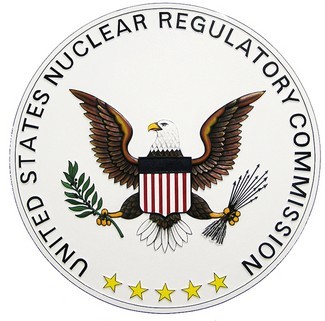I have often criticized the U.S. Nuclear Regulatory Commission for failing to do its job properly. I have charged that it has been a victim of regulatory capture by the industry that it is supposed to be regulating. I have offered examples of this such as the time that the NRC and the owners of the Diablo Canyon nuclear power plant in California conspired in secret to change the acceptable parameters of earthquake preparedness to allow the plant to satisfy regulations when new faults were discovered near the plant. Recent incidents have renewed these concerns.
Tritium is the radioactive isotope of hydrogen. When combined with oxygen, it forms water that is radioactive. Such water is often leaked from nuclear power plants and poses a serious health risk. Recently there have been major tritium leaks from the Indian Point nuclear power plant in on the Hudson River near New York City, New York and the Turkey Point nuclear power plant on Biscayne Bay in Florida. Authorities say that the amounts leaked have not threatened public drinking water and that the public should not be concerned but the public is concerned. As a matter of fact, over three fourths of the commercial nuclear power plants in the U.S. have reported radioactive leaks. Instead of tighten regulations, the NRC has actually weakened federal regulations in order to allow nuclear power plants to keep operating in spite of thousands of reported problems across the U.S.
In its own defense, the NRC insists that it conducts very thorough inspections and requires nuclear power plants to adhere strictly to federal regulations. Unfortunately, there are many critics who point to many incidents that would seem to raise the question of exactly how competent the NRC at regulating the nuclear industry. Following the Fukushima disaster in Japan in March of 2011, the NRC drafted new standards for emergency equipment and systems needed to cope with catastrophic failures at nuclear power plants. However, it appears that although the NRC requires that such equipment be purchased and installed, they have not drafted a set of minimum required standards for such equipment. This raises the question of what good the new regulations are if it is possible that equipment purchased and installed by nuclear power plants is not able to do the job for which it is intended.
The Indian Point leaks of tritium were not detected by monitoring at the plant which would be best but rather by monitoring of wells in the area around the plant that were drilled to watch for tritium leaks. The leaks from the Turkey Point plant were detected by sampling and analyzing water in Biscayne Bay. In 2010, NRC staffers called for the development of new systems to monitor leaks of radioactive materials at nuclear power plants but the recommendations were turned down by the NRC commissioners.
It is understandable that the companies that run nuclear power plants do not want to spend any money they don't have to comply with safety regulation from the NRC. The reason for the failure of the NRC to regulate the industry properly is more difficult to understand and accept.
